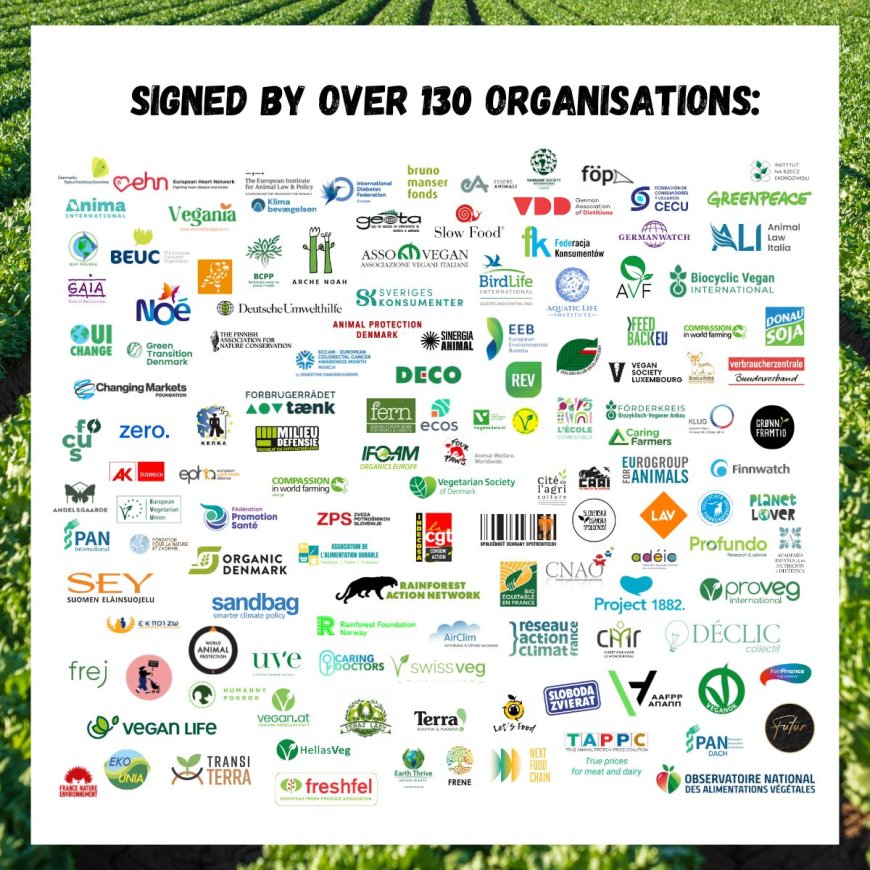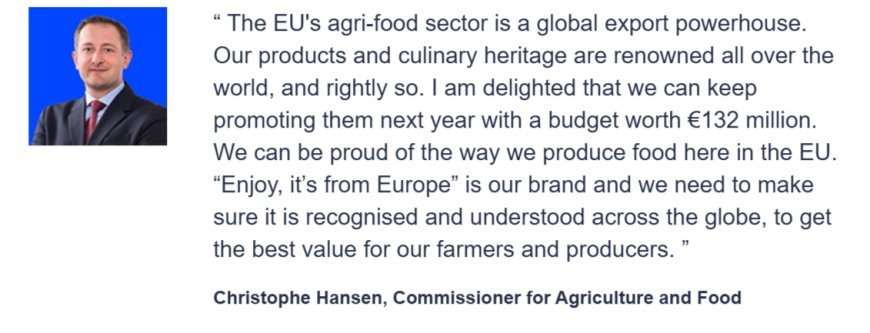More than 130 Organization United to Urge EU Action on Sustainable Agriculture, Food Safety, and Animal Welfare
Over 130 organizations, such as farmers, health experts, consumers, animal welfare supporters, and environmental advocates, have united to contact the European Commissioner for Agriculture and Food. This coalition raises shared concerns about sustainable agriculture, food safety, animal welfare, and environmental protection, urging policymakers to address these crucial issues within the EU.

A formidable coalition of over 130 diverse groups, including respected health experts, dedicated farmers, and passionate environmental advocates, is urgently appealing to the European Union (EU) to implement an ambitious Action Plan for Plant-Based Foods by 2026. This coalition includes a wide array of influential signatories, such as BEUC - The European Consumer Organization, the well-regarded Greenpeace organization, and IFOAM Organics Europe, emphasizing the importance of this initiative. The movement demonstrates the rising momentum toward revolutionizing Europe’s food systems and highlights the collective commitment to fostering practices that prioritize health and sustainability. The coalition seeks to tackle pressing environmental challenges by transitioning to a plant-based food system, promoting public health, encouraging local farming practices, and enhancing food security for all European citizens.
Six areas the Action Plan for Plant-Based Foods would help;
- Achieve strategic autonomy in proteins.
- Provide new business opportunities for farmers.
- Improve health.
- Protect the climate and our environment.
- Save money.
- Strengthen policy coherence.
Europe’s significant dependence on animal agriculture is reflected in its occupying 71% of the continent's farmland. This reliance demonstrates the scale of animal farming and highlights an urgent and pressing need for transformation in agricultural practices across the region. By shifting focus towards plant-based diets, the European Union has the remarkable potential to reduce land utilization for food production significantly. Such a move would not only help alleviate the constraints currently placed on forests due to livestock grazing and feed crop production, but it would also play a critical role in rejuvenating natural ecosystems that have suffered from agricultural expansion.

This transformation is not merely an ecological necessity but also well-aligned with the growing consumer demand for sustainable food options. As BEUC’s Director General Agustín Reyna aptly remarked, it is crucial to make plant-based choices "more appealing, affordable, and accessible" to the public. This means that to promote sustainable food systems, efforts must be directed at enhancing the attractiveness of plant-based foods, ensuring they are economically viable for all population segments, and making them readily available in markets across Europe. By fostering a landscape where plant-based diets are both desirable and attainable, the EU can lead the way in creating a more sustainable and environmentally conscious food system that benefits both people and the plane
Inspired by Denmark’s successful Plant-Based Action Plan, the EU can aid farmers, enhance policy coherence, and encourage healthier eating habits. Will the soon-to-be-released Vision for the Future of Agriculture fulfill this promise?
“The Commission’s forthcoming Vision for the Future of Agriculture and Food must take decisive action on the demand side and lay the foundation for an EU Action Plan for Plant-Based Foods. This is the crucial missing element needed to advance beneficial diets for people and the planet.”
The groups highlight the land use and environmental advantages of an Action Plan for Plant-based Foods. Currently, 71% of farmland in the EU is allocated to animal product production. In contrast, plant-based foods require approximately four times less land. Therefore, promoting the consumption of these foods would boost food production, reclaim land for nature, and enhance Europe’s self-sufficiency, as two-thirds of high-protein animal feed is imported. Increasing plant-based food consumption would significantly alleviate pressure on global forests, improve the climate, and lead to cleaner soils, air, and waterways.
 Kinyarwanda
Kinyarwanda
 English
English







































































